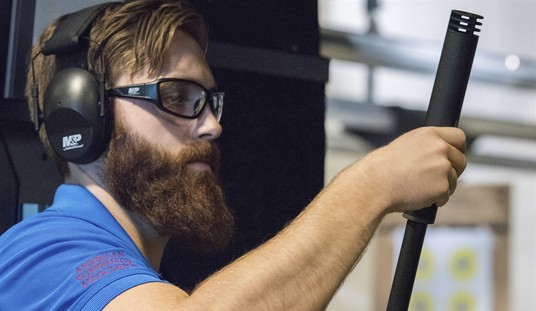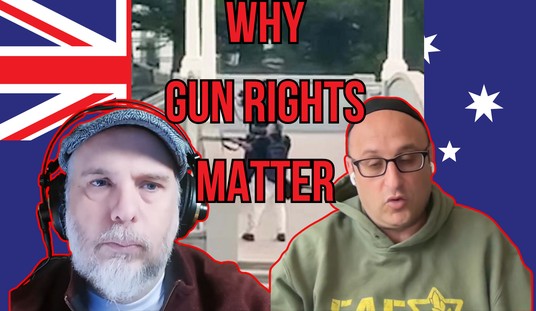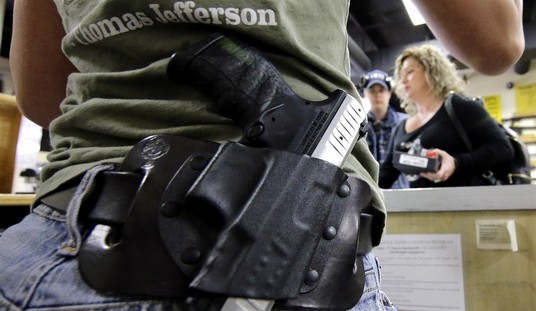A year ago, CCM Managing Editor Kathy Jackson asked me to write a series of articles discussing legal issues which come up in self-defense trials, and the series, "Incident to Acquittal" began. As the series comes to a close with this final article, I just want to thank Kathy and publisher Tim Schmidt for the opportunity to give a voice to this subject matter.
As we wrap this series up, a little review is in order. We first discussed a fictional incident where you, an armed citizen, were accosted by two individuals, one of whom fled the scene with the tire iron that was used as a weapon but never located by the police. Why wasn’t it located? Because you, the good guy or gal, didn’t tell the police about the tire iron; perhaps you had been brainwashed by otherwise well-meaning individuals to believe that one should NEVER talk to the police after a defensive incident. While there might be a time when that advice is golden, on this night you needed to make sure the police knew who the victim was, and that it wasn’t the guy bleeding to death on the asphalt. You were the victim, and the police needed to know that, and they needed to know about critical evidence (like the tire iron) which would allow them to understand your truthful accounting of events.
In the next installment, we discussed what will happen immediately after an incident, and the fact that police will likely arrest you for investigation of some form of criminal homicide, and that you will be going to jail. We talked about how to get out of jail, the process of securing bail, and the process of the preliminary arraignment.
After that, we attempted to make the reader understand that they cannot rely upon the police to thoroughly and competently investigate the incident. I personally have seen investigations which range from absolutely horrendous to downright competent. Because this is a crap shoot, you need to make sure your attorney has the ability to dispatch his investigators and hire experts to make sure the scene has been thoroughly investigated, and all witnesses (not just the ones the police like) have been interviewed. By the way, all this costs a bunch of money! You have likely spent at least $10,000 if not much more by this point, and you haven’t even gone to trial yet.
We also talked about choosing the right attorney, one who understands that your defense to the charge of murder is not a standard murder defense. In a standard murder defense, the state has to prove the elements of the crime to the standard of "beyond a reasonable doubt" and it is the defense’s job to discredit the prosecution. But in a true self-defense case, the burden shifts to you, the defendant, to prove that your actions were that of a reasonable and prudent person, and your proof must meet the standard of a "preponderance of the evidence."
Additionally, the role of the expert witness was discussed. That installment explained that an expert witness cannot opine that you were justified in shooting. Instead, an expert witness must explain scientific and perhaps behavioral evidence which would lead a reasonable person to believe that you were justified. Probably more important, the expert in a defense trial attempts to show that the prosecution’s case is faulty, using scientific methodology to disprove prosecution theories and counter false testimony.
When we discussed your legal defense, we explained that you will very likely need to testify. You need to tell the jury what was going through your mind, and paint a picture for them so they can decide if your actions were reasonable under the circumstances. The vast majority of people know that guilty defendants won’t take the stand, so if you sit all safe and smug at the defendants table, smiling at the jury, instead of honestly telling the jury why you were forced to kill, you are more likely to get sent to prison.
Closing remarks and jury deliberations
This leads us to the final act in the drama that has become your life: closing remarks, the verdict, and any possible appeals. After the prosecution and the defense present their evidence, each side gets to give closing remarks. That means the prosecution gets to state their version of what was said, and the defense gets the same opportunity. It is extremely important that during trial, the defense was able to expose any contradictory evidence the prosecution put forth. If that has happened, during closing remarks your attorney can discredit one if not many witnesses. Convince the jury the prosecution’s witnesses were lying, and you have a pretty good shot at an acquittal. But, if that is not possible, you still have your own shot, because even if everything the prosecution said was true, if the jury believes you were in fact justified in shooting by reason of self-defense, then it is still a "not guilty" verdict.
When the jury is sent to the jury room to deliberate, it is a stressful time for the defendant. I am thankful I have personally never faced that, and sincerely hope you never have to either. The jury will be then tasked with appointing a foreperson of the jury, and that person is then given the additional responsibility to make sure a decision is made. Unless the evidence is overwhelming from either side, this could take a while. If the jury does its job right, they will begin a review of the evidence, weighing on the scales of justice each point the prosecution and the defense made.
The verdict and appeal
If the prosecution’s side of the scales tips so heavily that there is no reasonable doubt about your guilt, then they will vote against you, finding you guilty. On other hand, if you have either created reasonable doubt in the prosecution’s case, or alternatively, used your affirmative defense to tip the scales even slightly in your favor, you are acquitted by reason of self-defense. Lastly, if the jury can’t decide, they report back that they are "hung" and you get a do-over. This is both good and bad. Good, because you now know exactly what the prosecution has in mind, and can develop your defense strategy for the next trial accordingly. Bad, because you will incur the additional expense of another trial, and that bill will likely be even larger because you will likely have to hire more experts to counter the anticipated prosecution.
An acquittal means the state cannot prosecute you again. But here is the kicker: An acquittal doesn’t mean you cannot be sued, and the civil suit can be won by the plaintiff by the simple "preponderance of the evidence" standard, not the standard of "proof beyond a reasonable doubt." So don’t go blabbing off to the press, your friends at the bar or anyone else about the events that have taken place. You must still keep your mouth shut for a minimum of two years, or perhaps even longer depending on your local rules regarding the statute of limitations for civil lawsuits.
If you are found guilty of any crime associated with this act, you have the right to appeal the guilty verdict. This is not done simply by saying the jury got it wrong. Instead, throughout the trial, your attorney should have been making objections to rulings by the judge regarding the admissibility of evidence, management of the trial, and even in some instances, prosecutorial misconduct. That’s right, at times some prosecutors will violate their canons of ethics to gain convictions. Sadly, the last trial I testified at (earlier this year) saw just such an instance, and the defendant, who I believed acted reasonably in self-defense, was convicted of second degree assault. He is in prison at this moment, awaiting the Washington Court of Appeals’ ruling on whether or not the prosecutorial misconduct of lying to the jury during closing arguments was prejudicial enough to warrant overturning the conviction. You see, even if the prosecutor lied to the jury, if the appellate court decides that this tiny little white lie wasn’t serious enough to sway the jury against the defendant, the conviction will stand. Welcome to the world of trial law.
Preventing unmeritorious prosecutions
As a closing note, I thank those readers who have commented (both good and bad) on my articles. It has been enjoyable to put in writing many of my thoughts during this series. I know that many have felt I put a dismal picture on what to expect after a shooting, but frankly, I simply tend to be a realist. This stuff happens, but there are a few things the reader can do to help prevent unmeritorious prosecutions.
First and foremost, know your state’s laws regarding use of deadly force in self-defense. This includes the case law, which means you might have to spend a few dollars to talk to a local attorney. When you call him up, tell him you want to spend some time discussing the law on self-defense, and ask him to look up the pertinent case law that you can take with you. If he is not willing to do this, find another attorney with whom to consult.
Second, get some training in self-defense. Even if you already proficient in using arms for self-defense, you still have a huge advantage if you can call in your self-defense instructor to explain to the jury your training in threat recognition, and how you likely used that training to recognize your life was in danger.
Third, avoid the confrontation if at all possible. You may live in a "stand your ground" state, and feel all righteous about your right to self-defense, but if you can avoid the issue, do yourself and your family a favor by doing so. Even if you are willing to go through the Hell known as a jury trial, don’t put your family through that if you can avoid it.
Finally, take the necessary steps to put your legal defense plan in place, so if you are arrested for a legitimate act of self-defense, you are not totally at the mercy of the monolithic criminal justice system. Good luck, and stay safe.
Note from the Editor:
Thanks to the United States Concealed Carry Association for this important article. To stay informed about concealed carry please click here for their free newsletter, The Armed American.








Join the conversation as a VIP Member